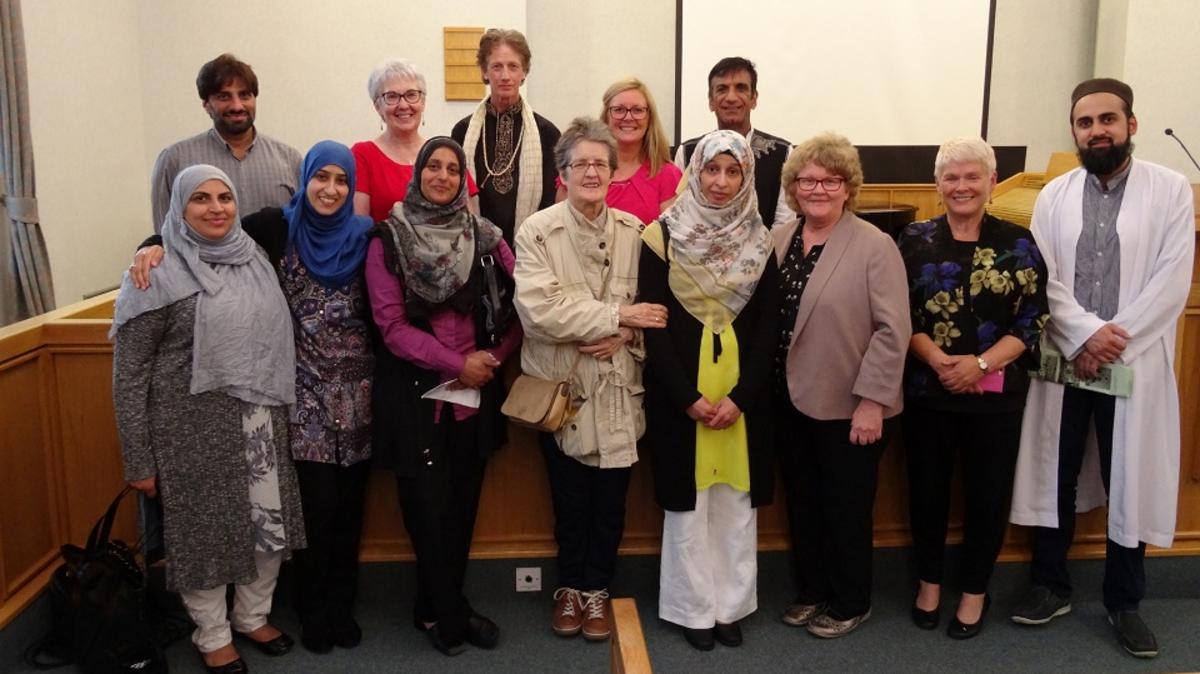Listening to the news in recent months, I have thought about the lives touched by conflict, atrocity and hate crime – those who are caught up in conflict, and devoid of peace, safety, and security. The effects of these situations reverberate in the UK, as pain finds expression in negative or even hostile words and actions towards others of differing views.
In such times it is ever more important that we reach out, build bridges, and work with others. As part of my church calling, I serve as the Church’s representative for the UK on the National Inter-Faith Network, a diverse group of representatives of over thirty national faith communities who meet regularly and discuss a range of relevant issues.
We meet with representatives from government, charities, non-governmental organisations, and various experts. We are invited to participate in ‘round tables’, contribute to white papers, take part in surveys, and more.
But the most important thing we do is listen and talk together. We engage in dialogue and discuss our many shared concerns. In this setting, friendship and trust grows. It is a hope-filled environment.
As tensions arise from time to time in our wider communities, there are diverse groups of people in interfaith settings all around the country working to maintain the relationships that are essential to community cohesion.
Not surprisingly, it is in service that we find our unity. Care is a universal concern and in interfaith settings I hear about the amazing work in which each group is involved, and in turn I can share the work the Church does.

But it is when we are standing side by side in the soup kitchen or delivering shopping to someone in need, that we see beyond our perceived ‘walls’, to the reality that we are brothers and sisters, and all God’s children. We all know that the real work goes on behind the scenes without fanfare or praise. The truth is that tolerance, respect, kindness, and unity are born in our hearts. No group has a monopoly on goodness. It is everywhere.
It takes self-control to avoid the many triggers that may cause us to take offense, use harsh words, or behave aggressively. These triggers sit like snares in chat rooms, on social media, and in the actions of others around us. The wonderful saving question “What would Jesus do in this situation?” is a great rescuer. It helps us to take control of our words and actions and be a participator in solutions.
There is sometimes a temptation to think that our small unseen efforts are pointless when matched against a tsunami of negativity. But much like yeast in dough, working for unity, harmony, and fairness can make a difference. Moving from passively wishing things were better to actively making things better, even in small ways, is what makes a happier mindset. If we want the world to be better, we need to be our better selves.
Speaking of the peace offered by Jesus Christ, Mosiah tells us, “And again, how beautiful upon the mountains are the feet of those that are still publishing peace”. Peace and peaceful ways can exist, but not by accident. I am inspired by all those who work to make it happen, whether in interfaith work, ministering or service.

